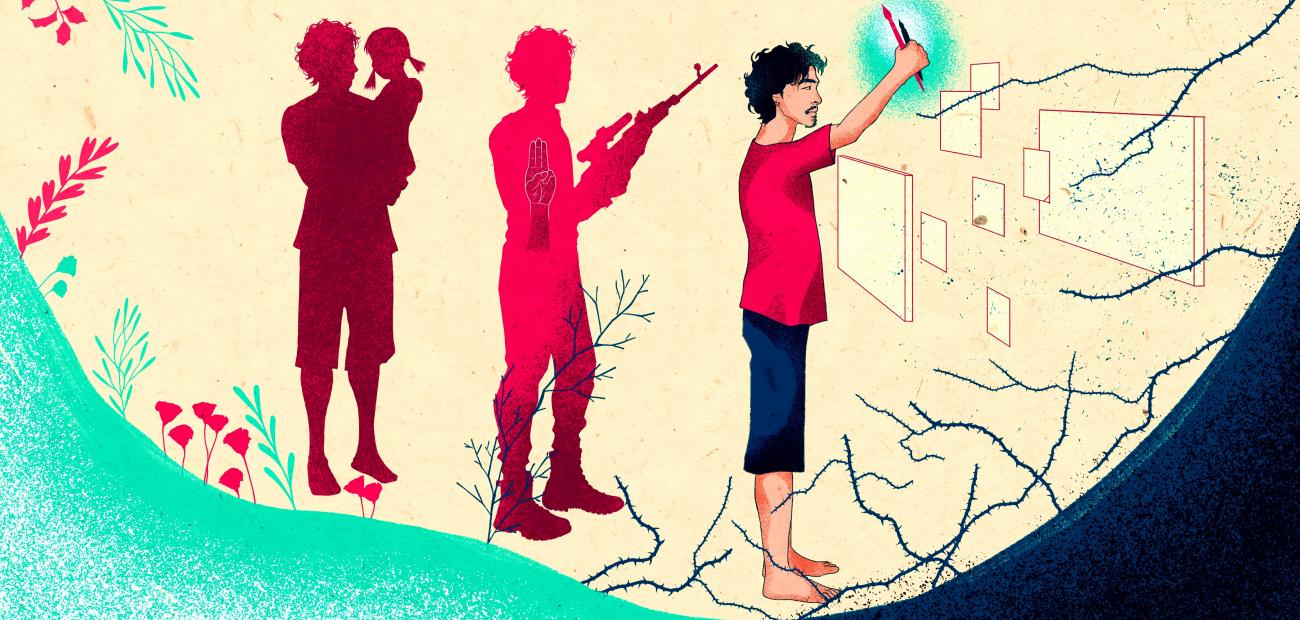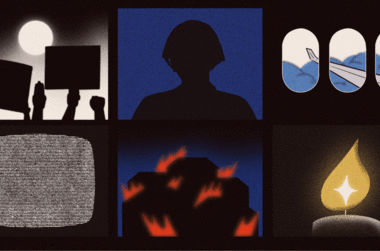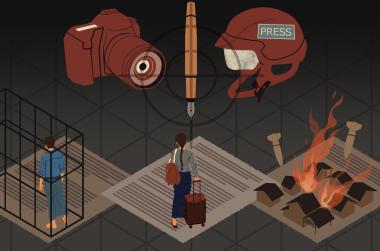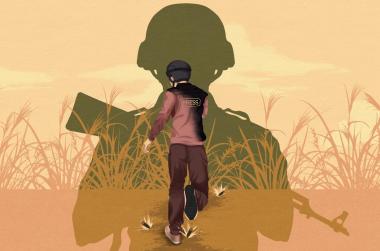The writer is a former journalist from Myanmar who is now abroad. She is receiving support from The Kite Tales to write these diaries.
I met the cartoonist through a friend in early April. A thin man with unruly hair and a prominent moustache, he is hard to miss in our little community of displacement.
I had been aware of his art for a long time and seen many of his cartoons in pro-democracy media. But this was the first time we had ever spoken. We quickly fell into reminiscing about our lives and talking about what has happened to us since the coup last year that forced us both to flee our homes.
Ever since our conversation, whenever I find myself thinking about the hell that I have lived through since the military seized power, I always tell myself that I'm not the only one suffering. And I think about the plight of the cartoonist.
“I have a wife and daughter,” he told me.
“I miss home so much that I want to run back to them.”
He said he had always been interested in the arts. But growing up in a small village in the Bago Region, he did not have easy opportunities to live a creative life. Instead he drove a tuk-tuk to earn money and drew cartoons in his spare time, sending them off to media outlets. Before long he managed to get a few published and he started making a name for himself as an illustrator.
He said his humble beginnings mean he empathises with the underdog, the poor and the vulnerable.
“Cartoonists have to be on the side of the oppressed,” he told me.
This, he said, is why they are hated by all governments.
"Political cartoons point out weaknesses and loopholes regardless of who is in power," he said.
He turned professional in 2016. At the height of his career he was drawing regular cartoons for some of the biggest Myanmar newspapers as well as live-illustrating a well known political debate show.
“I don't get much money for it and there is a lot of hatred too. But I believe that the path I have chosen is the right one,” he told me.
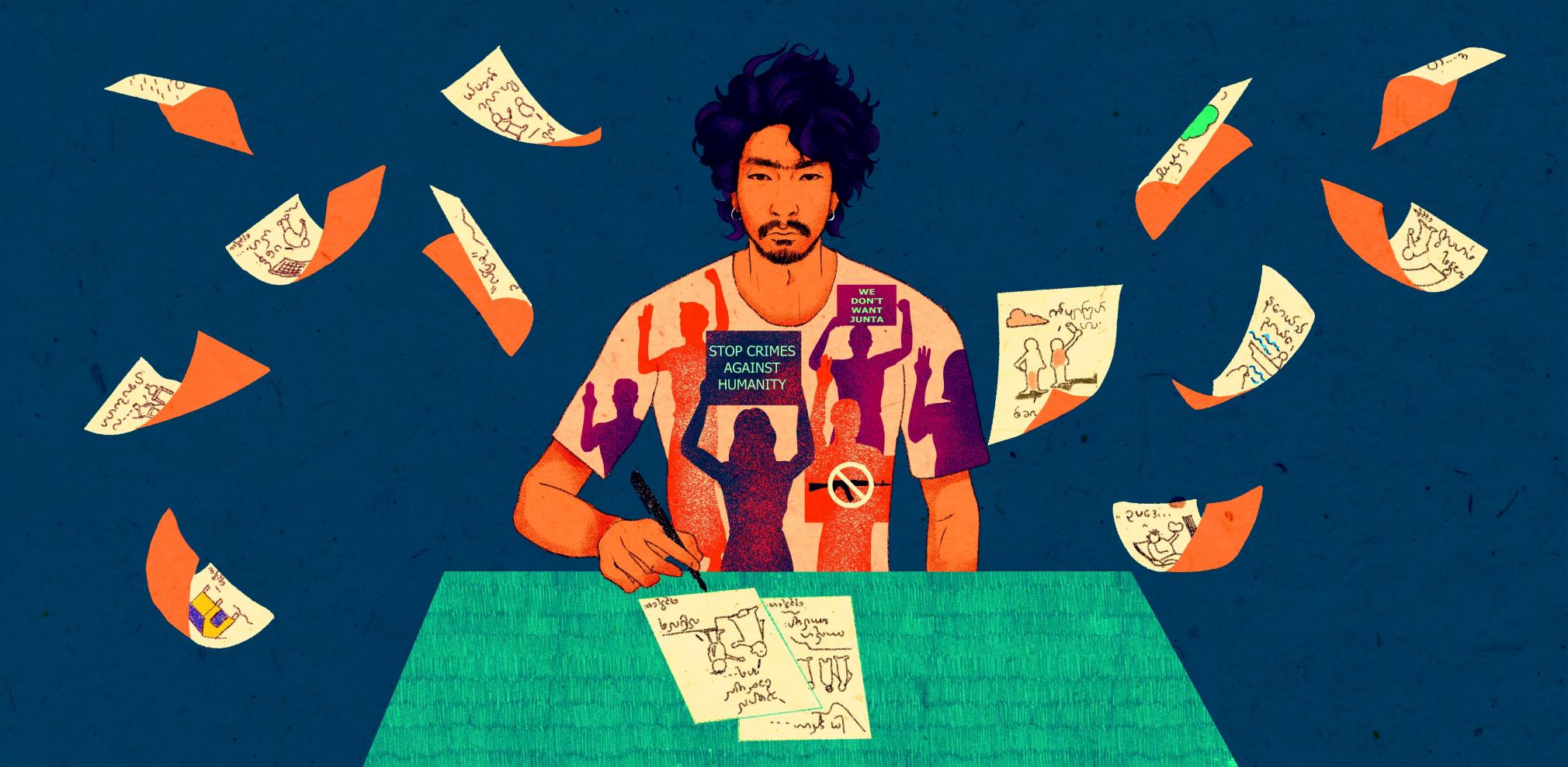
After the military seized power he took part in street protests and threw himself into his work, drawing cartoons to “release these extremely strong emotions I was feeling”.
But as the junta’s crackdown intensified, he was forced to leave his beloved birthplace in the western part of Bago and head to an area in Karen State held by the Karen National Union, one of the country’s major ethnic armed groups.
He wanted to throw down his pen and pencil and take up a gun to fight the junta.
The cartoonist trained for a while with the hardened KNU fighters, but after the area came under attack by the military, he fled to the border with Thailand.
It was a struggle to settle down as a stranger in a small border town.
“The only way I know how to earn a living is to draw cartoons,” he told me.
“And I can’t go home anyway.”
At first he lived in crowded accommodation but found he was unable to concentrate with so many other people around.
A friend has helped him out with some money to rent a small apartment, which he shares with another cartoonist.
He still has regular media clients so he hopes that he will be financially stable. Recently he sold a painting and donated the proceeds to those still fighting in the jungle.
But he misses his family terribly, especially his young daughter.
And he yearns to return home.
“If the situation calms down, I will go back,” he said, determined.
‘I will rear animals. I will plant trees. I will drive a tuk-tuk again. I want to draw cartoons and live in peace. ”
Artwork by Songbird who is receiving support from The Kite Tales to produce illustrations.

